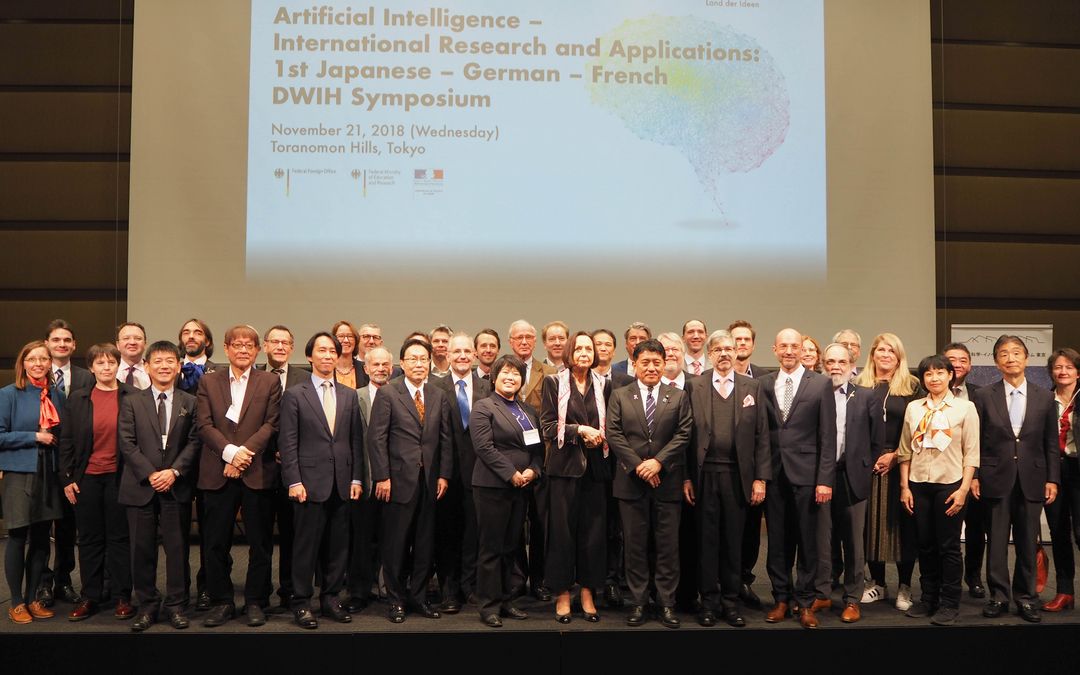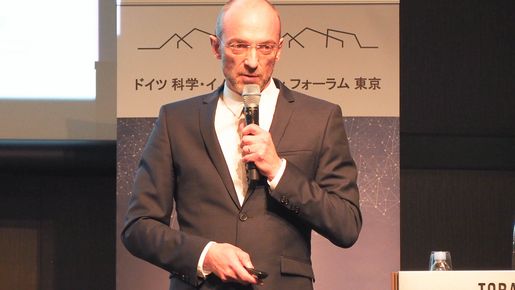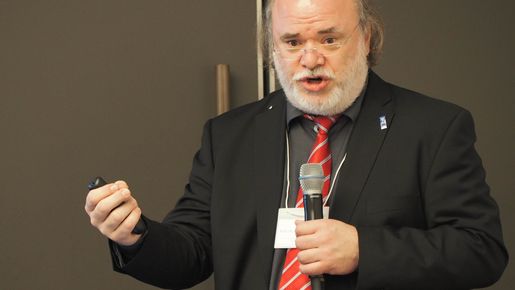Under the title "Artificial Intelligence - International Research and Applications", more than 350 Japanese, German and French experts from research institutes, universities, politics and business discussed the current issues and potentials of artificial intelligence at a conference with prominent speakers. The interdisciplinary event showed the current status of AI technologies and developed future scenarios in the field of sustainable smart cities, autonomous vehicles as well as innovations in the field of industry and health care.
At the opening of the two-day symposium, Andreas Dengel gave a keynote speech on "Augmented Intelligence - Towards Self-Learning Machines", which gave an impetus to the possibilities of artificial intelligence as a cognitive performance enhancer that can enhance human senses and act as a co-creative partner. He emphasized: "We must set international guidelines and rules for the use of AI. Alliances are just as important in defining technological standards and norms. France and Japan are exactly the right partners for us to compete with China and the USA in this regard."
Philipp Slusallek chaired the session "AI Applications in Mobility and Autonomous Driving" and gave a lecture on "Understanding the World with AI: Training and Validating Smart Machines Using Synthetic Data". "If we don't understand AI systems and make them understandable, we can't build society's trust in AI. Before we let pilots fly an airplane, we let them prove that they can master critical situations," says Slusallek.
At the end of the symposium, participants from Japan, France and Germany agreed to work even more closely together on AI in the future. In order to publicly affirm this goal, the experts agreed on a joint declaration of intent:
Joint statement of the German, Japanese and French participants on intensified collaboration in AI
On the occasion of the first Japanese French and German Symposium on ArtificialIntelligence, organised by the DWIH Tokyo and the Embassy of France in Japan, the participants from the fields of research, policy, and funding organisations express their willingness to intensify their future collaboration in AI research and innovation.The cooperation will be carried out in the spirit of shared ethical values for the commongood of our societies. At the centre of this collaboration we put a human-centred approach which will set common standards and a joint understanding of the potential of Artificial Intelligence.
We strongly support the creation and reinforcement of networks of individuals as well as networks of institutions. Based on the respective national strategies of Artificial Intelligence we see the need and the scope for intensified exchange of researchers, ideas and perspectives to face challenges in areas such as health care, mobility, environment, connected industries, or disaster risk reduction. The ultimate aim of Artificial Intelligence is to serve people and contribute to the improvement of the quality of life for the individual as well as for society as a whole.



